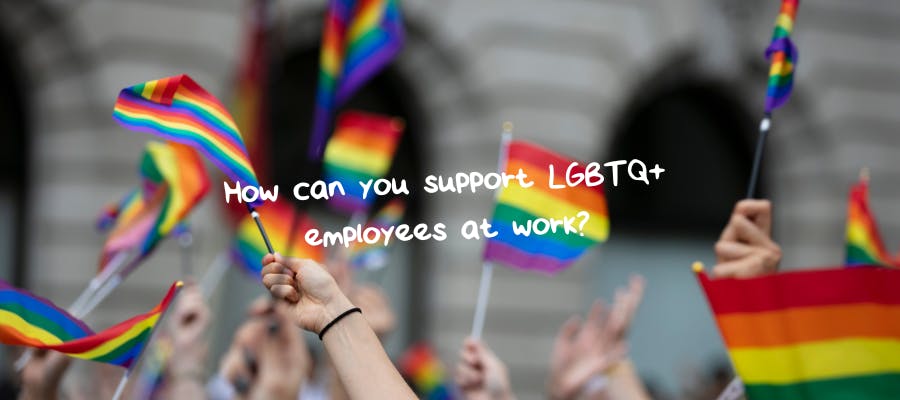First published on Friday, March 17, 2023
Last updated on Thursday, March 7, 2024
During Ramadan, Muslims across the world fast from food and drink sunrise to sunset, as one of the pillars of Islam. It's a time to reflect, renew faith, and practice intense devotion and spirituality. This year, Ramadan will start on March 10th and your Muslim employees will fast for 30 days after.
Fasting for hours may affect your staff’s productivity at work. That’s why it’s important you put certain measures in place to help your Muslim staff during this period. Here are the 5 best HR practices employers should follow this Ramadan…
*1. Be empathetic to fasting staff *
Fasting might impact employees' productivity, especially if their work is physically demanding, so making allowances for fasting employees is key.
A great starting point would be sending an internal email with details about how you’ll be showing your support for fasting employees during Ramadan. This will create a safe and open space for them to talk about how it will affect their work. It also helps to check in with them often to see how they're doing. This will hopefully allow them to feel supported and can help your staff maintain productivity.
2. Schedule meetings for earlier in the day
Employees have more energy when they're still feeling strong and alert in the morning. They'll get more tired as the day progresses, so try to schedule your meetings in the morning. Be mindful not to hold food or drink-focused meetings during this time, like coffee chats or lunch and learns. Get creative with a different kind of inclusive meeting instead.
Most fasting staff won't mind their colleagues eating and drinking in front of them. But it’s hard not to feel left out when the meal is the focus of a meeting.
*3. Be proactive with managing time off requests *
The final 10 days of Ramadan are the holiest and a time to observe religious practices. As Ramadan ends, you'll likely get more time off requests as staff celebrate Eid al-Fitr. Employees might also want to spend more time with their families to prepare for the celebrations.
Since the Islamic calendar is lunar, employees may not know the precise time off they'll need. So, they'll likely have to request holiday on short notice. It can be challenging to manage last-minute schedule changes. But employees will appreciate flexibility around requesting time off. Learn how BrightHR's schedule management software makes sure you're never understaffed.
*4. Make room for flexible working hours *
Allowing employees more flexible work hours can make Ramadan much easier. Just because your Muslim employees might choose not to take their lunch break, doesn’t mean they aren’t entitled to a 20-minute rest break for every 6 hours of work. Allowing your staff the flexibility of choosing when to take their breaks—such as finishing earlier so they can break their fast earlier—is a great way to show support.
Making room for these requests and remote work is an important way to support your Muslim employees during the Holy month. It's also great to let staff working late shifts get enough break time to pray and break their fast. Knowing there’s no rush reduces stress and makes your staff more motivated to return to their shift. Find out more about your employee's break entitlement so you can better support your staff.
Employers offering staff flexible hours to accommodate fasting can use Blip—our time-tracking app. It's a great way to keep track and ensure your employees take regular breaks.
*5. Raise awareness and promote sensitivity training *
Many staff members might not understand the significance of Ramadan to their Muslim colleagues. It’s important that you have open conversations and share reading materials to help your employees learn.
Also, encourage employees to talk to Muslim coworkers to learn more about Ramadan. This is key to avoiding faux pas, such as offering water or any other drinks to fasting colleagues or making insensitive comments.
There are also plenty of personal reasons—from illness to pregnancy—why some Muslims will eat food or drink during this period. So, while awareness of how Ramadan is observed is important, it’s just as important for employees to support their Muslim co-workers and not question them if they do eat or drink.
Create a supportive work environment this Ramadan with BrightHR
Employees who don't feel valued or seen in the workplace may feel isolated and have low brand loyalty. These staff members are more likely to quit on short notice and take their skills elsewhere. That's why employers should acknowledge and be inclusive about important religious festivals like Ramadan.
Managing inclusivity in the workplace can be tricky though. So, lean on our HR experts' years of professional experience and knowledge through BrightAdvice’s 24-hour helpline.
Get trustworthy advice on how to respectfully observe religious events and encourage inclusion in your workplace—giving you peace of mind that you're acting in line with the latest legislations.






